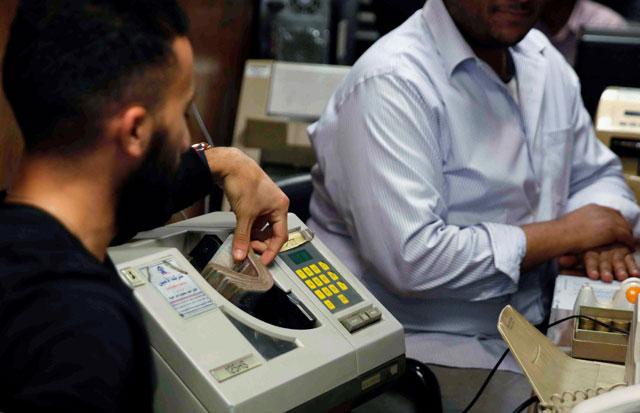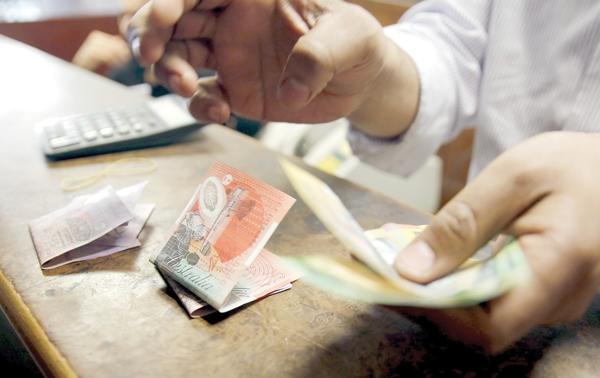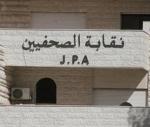You are here
Currency black market thrives in Egypt
By Reuters - Feb 03,2014 - Last updated at Feb 03,2014

CAIRO — Egypt’s Central Bank has taken extraordinary steps to prop up the currency and curb a black market in foreign exchange — but in back alleys and money changing shops around the country, illicit dealing continues to thrive.
This stubborn survival shows the limits of the economic recovery since Islamist president Mohamed Morsi was ousted last July, despite inflows of billions of dollars in aid from Gulf Arab governments.
Sluggish tourism revenue and foreign investment are keeping supplies short, along with many overseas Egyptians’ preference to send money home via the black market, where they get a better exchange rate.
The Central Bank is in its second year of auctioning hard currency to satisfy demand; last month it conducted its biggest auction, selling $1.5 billion. It has also shut down some money changing firms for manipulating prices.
But dollars are eagerly sought on Cairo’s black market and currency traders at banks say they haven’t been able to meet their clients’ demand through official channels for months.
Morsi’s fall cleared the way for Egypt to obtain billions of dollars in aid from the military-backed government’s allies in the Gulf — Saudi Arabia, the United Arab Emirates (UAE) and Kuwait — although other billions have had to be returned to Qatar, which backed Morsi’s Muslim Brotherhood.
Authorities have stabilised the Egyptian pound’s exchange rate against the dollar in the official market. A slide in the Central Bank’s foreign currency reserves to near-crisis levels has also been halted, although reserves remain at half their level before the Egyptian revolution of early 2011.
But the Central Bank still appears unable to provide the economy with nearly as many dollars as it needs, while many Egyptians see the risk of further weakness in the Egyptian pound down the road. So they are willing to buy dollars at big mark-ups in the black market.
“There is always a shortage in the market that is sometimes being interrupted with these big auctions,” said Mohammed Abo Basha, Cairo-based economist at investment bank EFG-Hermes.
He estimated the monthly gap between demand and supply for dollars in Egypt at between $500 million and $700 million, assuming economic growth of between 2-3 per cent.
Official rate
Egypt had a thriving currency black market during economic instability in 2003. It mostly disappeared as the economy strengthened, only to reappear after the 2011 revolution, which frightened off many tourists and foreign investors.
The Egyptian pound is officially trading between banks at 6.96 to the dollar, about 11 per cent weaker than it was near the end of 2012, when the Central Bank launched its auction system as a way of rationing hard currency and protecting its reserves.
Banks are required to trade dollars within set ranges around the Central Bank’s auction cut-off prices for inter-bank, commercial and retail transactions, giving authorities considerable influence over official exchange rates.
In practice, however, many Egyptian firms and individuals find it hard to obtain as many dollars as they want from commercial banks; they turn to illicit dealers, who are now quoting the exchange rate at around 7.35 pounds to the dollar.
The dealers range from street vendors in leather jackets to urbane men in suits who work from marble-halled bureaux de change. Customers include well-heeled businessmen, students studying abroad and pensioners who want to protect the value of their savings against inflation running above 10 per cent.
One street trader in Cairo, operating out of a crowded indoor market for fake designer bags, says he can obtain up to $100,000 for his clients within a week.
“I can get you a million if you want,” he grins, sitting among piles of dusty suitcases for sale.
Such dealers obtain many of their dollars from Egyptians who work abroad. Remittances are a major source of foreign currency for Egypt, but some workers send money home to their families through the black market, where they get more pounds for their dollars, than via bank accounts and the official market.
A trader at a legal bureau de change near Cairo’s Adly Street, a commercial area, remarked that his business is suffering because he quotes dollar sellers the official exchange rate — unlike some of his competitors nearby.
“My customers ask me about the price of the dollar and when I give them the official price, they don’t like it and go out,” he said.
Authorities have taken legal action against some money changers, temporarily shutting down 13 last month, but the campaign has not come close to eradicating the black market — perhaps because officials realise that closing the channel entirely would cause more hardship for families and businesses.
Last December, the Central Bank took aim at a loophole in the official market by warning commercial banks that they were required to trade all foreign currencies, not just the dollar, at official rates.
But some traders remarked that this could backfire by encouraging commercial banks, finding it harder to make money on their sales of euros, to hoard foreign currency — thus driving even more customers into the black market.
Many traders believe the only sure way to stamp out the black market is for the Central Bank to increase the amount of foreign exchange it supplies. In December 2012 it launched the auctions to counter a run on the pound.
Balance of payments
Authorities seemed close to success in the weeks after Morsi’s overthrow, when a burst of optimism about Egypt’s political future appeared to attract some money back into the country, easing the dollar shortage.
After a very large dollar auction in September, the gap between the official and black market dollar exchange rates narrowed to just 5 or 10 Egyptian cents, a trader noted.
In the last several months, however, the gap has expanded back to around 40 cents — smaller than the roughly 90 cents seen at times under Morsi, but large enough to indicate a sizeable supply-demand imbalance.
While aid from the Gulf — $12 billion was pledged last July with billions more expected in the next few months — has stabilised Egypt’s balance of payments, it has not so far produced a recovery of the tourism industry or a resumption of big inflows of portfolio and direct investment.
This means the country’s external position is still vulnerable, and the Central Bank remains unable to flood the official currency market with as many dollars as would be needed to make the black market irrelevant.
“Not all the aid finds its way to the market. Some of it is kept at the Central Bank to replenish reserves or pay for external debt or imports,” Abou Basha indicated.
Egypt has been running a big deficit in its trade of goods and services, of $24.9 billion in the year to last June, while net inward direct investment is running at about $4 billion a year, down from around $8 billion before the 2011 revolution.
This keeps pressure on the Central Bank’s foreign currency reserves. Even with the aid from the Gulf, the reserves have rebounded only to around $17 billion, up from $13.4 billion in March 2013 but way below pre-2011 levels around $36 billion.
Tensions between Egypt and Qatar have complicated the situation. While Saudi Arabia, the UAE and Kuwait were pleased by Morsi’s fall and provided aid in response, Qatar was close to him and its financial support has decreased.
Since last September, Egypt has returned a total of $3 billion in Qatari deposits, and it plans to send back a further $3 billion when bonds mature by the end of this year, an Egyptian Central Bank source told Reuters.
“The intention of the Central Bank was to kill the black market through several special auctions,” said a currency trader at a commercial bank in Cairo, but added that this had proved impossible because of the drain of funds back to Qatar.
As long as Egypt depends so much on foreign aid to support its balance of payments, Abou Basha remarked, the dollar shortage is likely to persist.
“With this kind of balance of payments status, the black market will not cease to exist any time soon,” he said.
Related Articles
CAIRO/RIYADH — Egypt’s efforts to stamp out illicit currency trading is pushing black market dealers to carry out transactions abroad, beyon
CAIRO — Egypt's war on black market currency traders is not going to plan.
CAIRO — Egypt's pound plunged in value on Thursday as the central bank floated the currency to address a dollar crunch that threatened to ca















